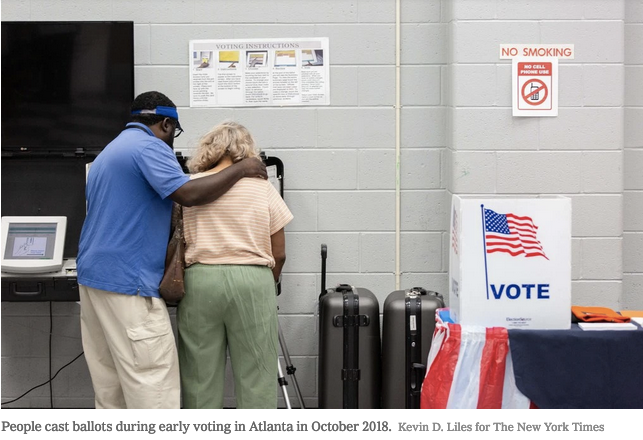The fifth Democratic debate in Atlanta brought the spotlight of the presidential primary to Georgia, a state plagued by rampant accusations of voter suppression and unfairly aggressive voter registration purges.
The 2018 governor’s race was marred by accusations of rampant voter suppression, particularly of African-American and other minority voters. There were reports of exceptionally long lines in predominantly black voting precincts, properly registered voters being forced to use provisional ballots, voters being turned away even with proper ID, and precincts being closed or relocated with little advance notice.
In the end, the Democratic candidate, Stacey Abrams, narrowly lost to the Republican, Brian Kemp.
An Associated Press report published during the 2018 election found that Mr. Kemp — who at the time was the Georgia secretary of state and was in charge of running the election — had stalled more than 50,000 registrations of voters who were mostly black, claiming issues with their applications. (Mr. Kemp denied the report.)
The state has also been aggressively purging voters from the rolls since 2017, when it canceled the registration of more than 530,000 voters who had been inactive for several years. It was one of the biggest voter roll purges in U.S. history. Last month, the Georgia secretary of state said officials would remove more than 330,000 more.




